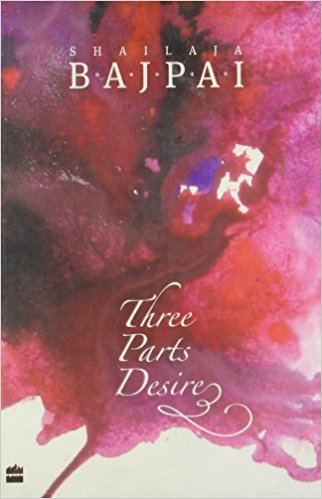It is ironic indeed that ‘Woman’s Desire’ has always been a no man’s land, a barbed twilight zone far beyond anyone’s reach. As the prime site of women-centric crimes, woman’s body has been on the focus for the last few decades, but not many have dared navigate into the ‘cora’, the mystique, the semiotics of woman’s fantasy, her instinct to fly beyond borders and boundaries, beyond the narrow confines of a rigid social structure which grants her soul no choice to select ‘her own society’, a ‘home’ or even a ‘room’ of her own. Even Didies and Babies who have not been denied basic privileges of good education and a rich library network, even those who have been blessed with some opportunities to earn global exposure (a foreign degree and a varied male company) find their wings clipped by the inner contradictions of a rigid patriarchal structure which pampers and pats and flattens the ‘calf’ only for the D-day—a caste and class bound ‘arranged marriage’ nailed in a set routine of warming the bed, cooking dishes and raising kids.
Purush’s impotency in the novel is metaphoric. Most of such bossy men suffer some kind of a spiritual impotency which ‘demands’ without the innate potential to ‘return’ love. Pitched against ‘Purush’ are the gentlemen like Jeff and the ‘new men’ like Bhai Chacha, sensitive Utopians torn between the world of poetry and that of business; and men also like Kartik, ‘brilliant’ failures among the first generation migrants, who fail major exams despite all brilliance, but pass the test of love. Their long wait, the wait without hope, speaks for their rootedness. It is this very rootedness, this sense of character, that draws the uprooted Babies back to their roots. The quest of ‘home’ is metaphoric too and t[/ihc-hide-content]he ‘equation’ between the vulnerable Didi and her omniscient mother-in-law smacks of a new sense of poetic justice.
The moral geography of the well-crafted novel is rich and varied private dining spaces, pitched against ‘dhabas’, gardens pitched against streets and parks, private libraries pitched against public libraries and bookstores, ‘space’ flights pitched against auto and bus rides, UPSC building, posh govt. localities and Charbagh bungalows pitched against basties and other sublet spaces, highfliers like Daddy pitched against UPSC aspirants and other ‘failures’ among Delhi University pass-outs. This checkered reality that is India, has been delicately unfolded. Cousins like Mahendra and maids like Sista are faces of the fascinating sides of India that is Bharat.
The need to link-up and home-in has been sensitively potrayed from three different perspectives—the perspectives of two women (Didi and Baby born out of wedlock) and that of Kartik. Man, the new man, Kartik, rooted and appreciative of the woman’s desire to ‘select’ a society of her own.
There are a few yawning gaps here and there, but on the whole, it is a pleasure reading the novel both as a personal history of some grossly misunderstood, straightforward people and as a saga also of small, lost people with nowhere to go and nothing to spend young migrants who dream of making it big in life, first as a ‘revolutionary’ and then as a regular ‘bureaucrat’, those who succumb to ‘Desire’ many a time, flirt out of sheer exhaustion, flirt despite the innate potential to excel as great lovers.
Three Parts Desire opens up gradually. Like a sleeping baby’s lips looking for the nipple, it opens and shuts with soft pouts—it hits you here and hits you there—missing the target, reaching and going behind.
Womanist in the subtlest sense of the term, it spreads across three generations of mighty women, women both delicate and serene (like Mem, Didi and Baby) and blunt, uneducated, solid and stable (like Sita). It is womanist also because of its excellent portrayal of the strong bond between the soul sisters like Sita who fight and object, scold and nag, complain and grumble at the slightest pretext and yet don’t leave you alone in the bleakest hours of life.
Sita’s cutely blunt observations smack of good humour and flicker as brilliant comic interludes. The mish-mash of rooted Hindi expressions has sensibly been projected to highlight the bonding womanist of classics. A great number of chapters begin with the live time the preceding chapter ends with, thus evoking a spiral, gyre-like structure propounded in the ‘Kundalia’ form of Hindi Prosody. The merging of the end and the beginning, the coiling up of the ‘start-ups’ and ‘endpoints’, also hints at the ‘pattern’ of experience extending over generations as in Ashapoorna Devi’s trilogy (Pratham Pratishruti, Suwarna-lata, Bakulkatha) and in Alice Walker’s My Mother’s Garden.
[/ihc-hide-content]

